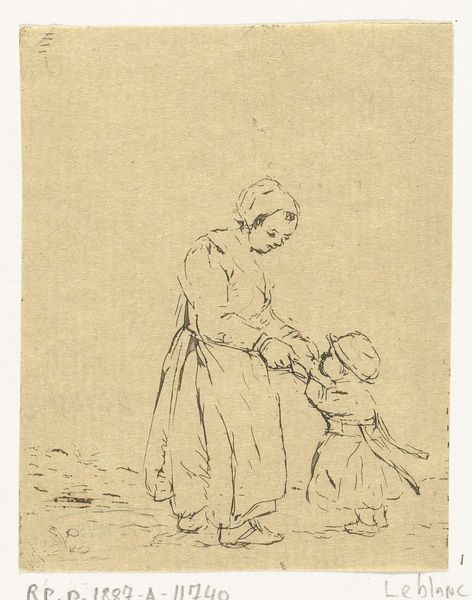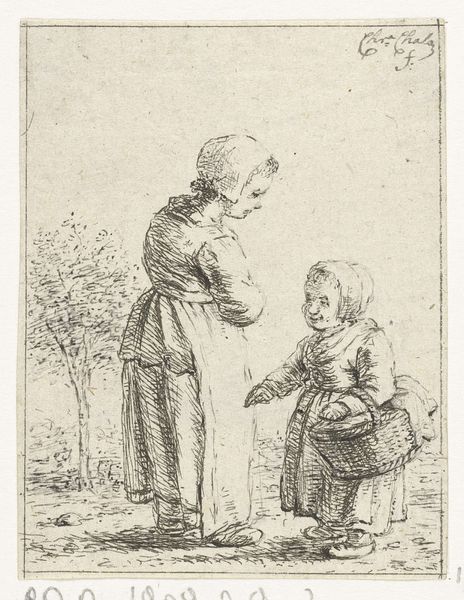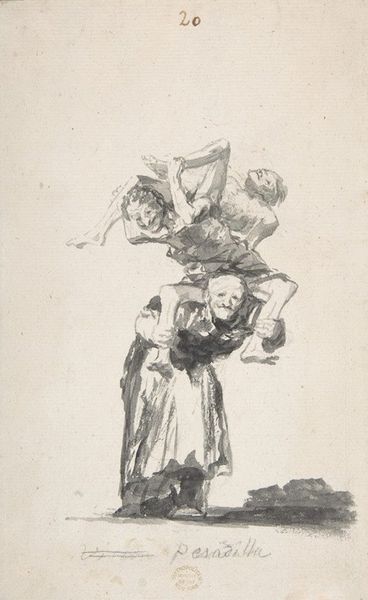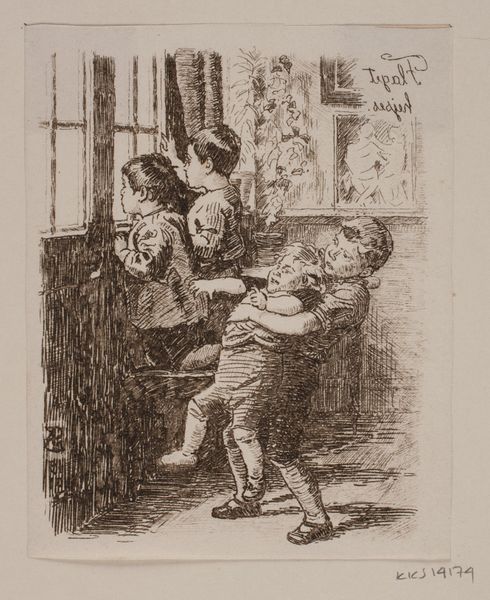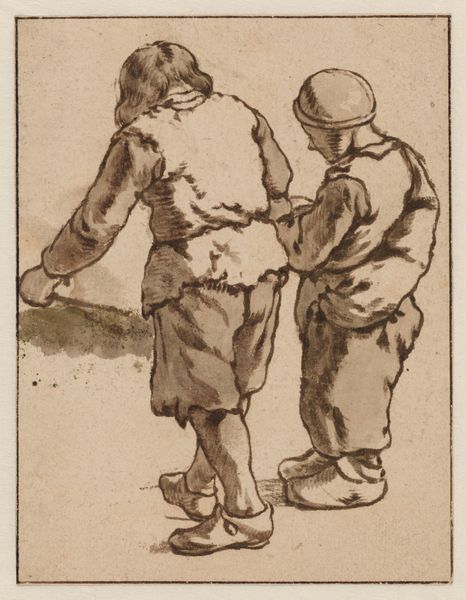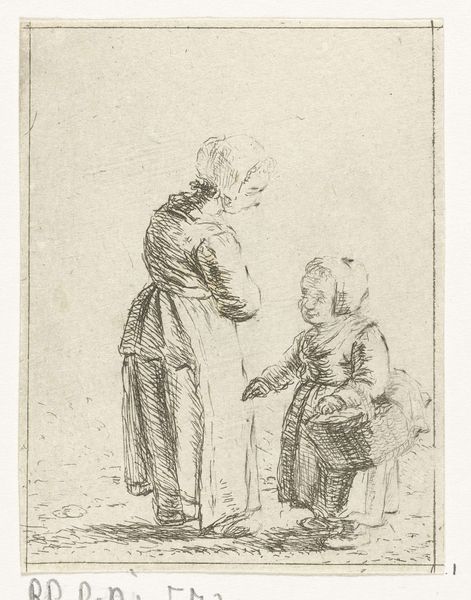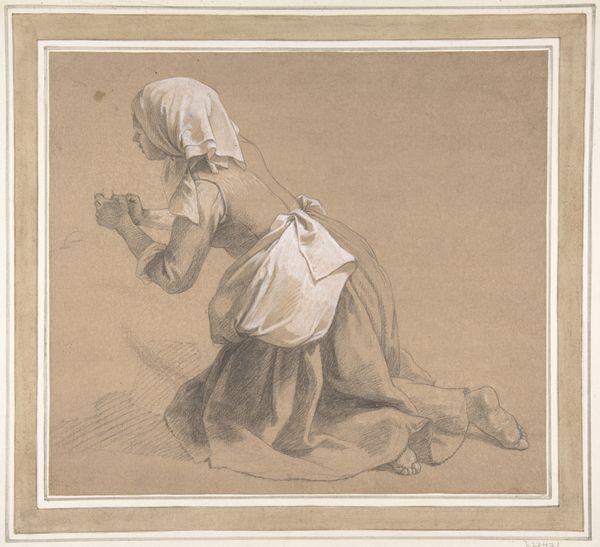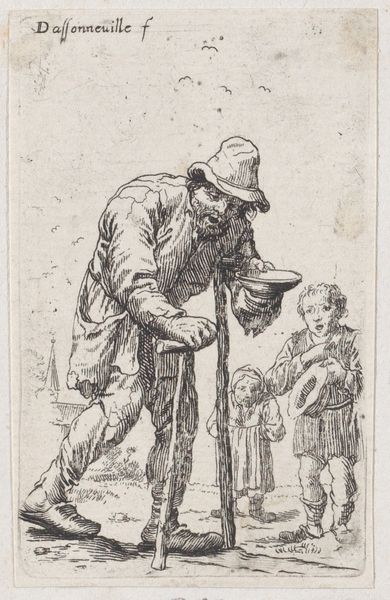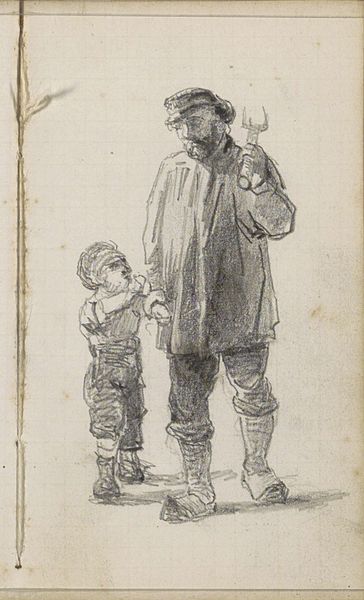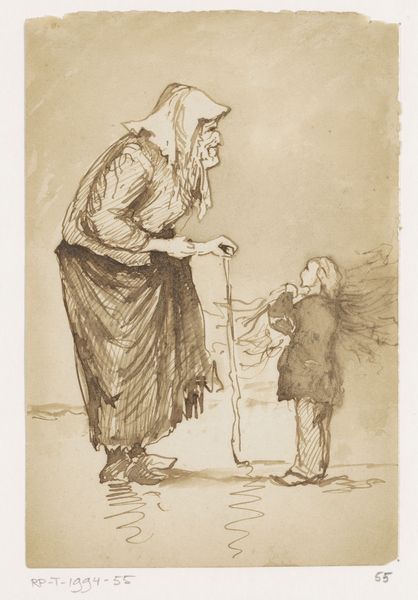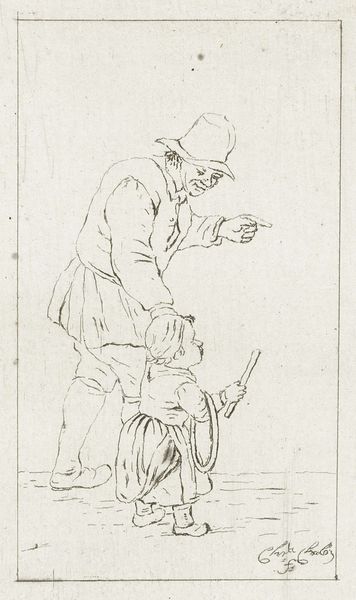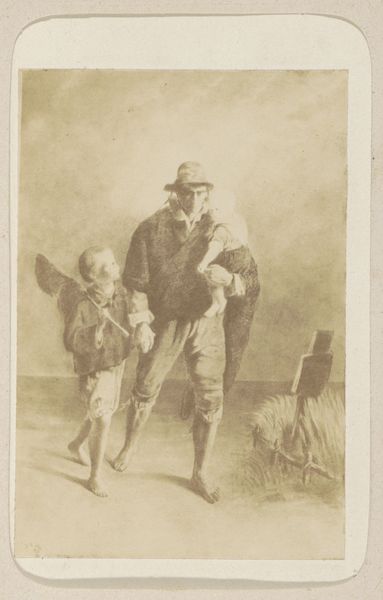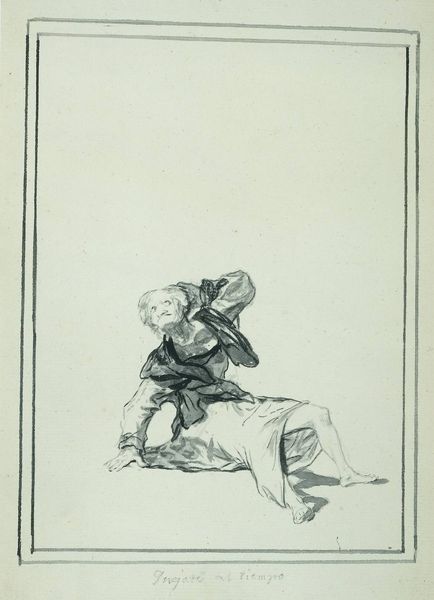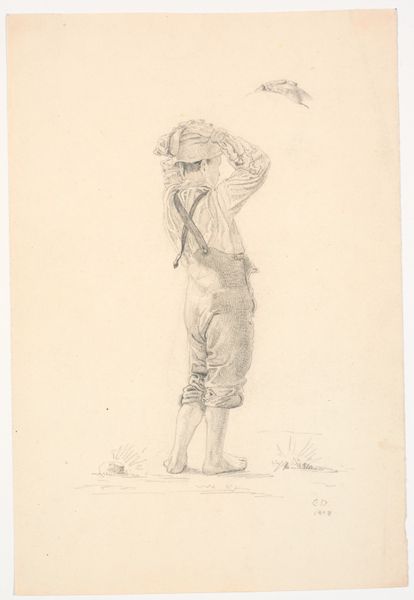
drawing, pencil
#
drawing
#
caricature
#
pencil sketch
#
pencil
#
genre-painting
#
realism
Dimensions: height 187 mm, width 150 mm
Copyright: Rijks Museum: Open Domain
Editor: Here we have Pieter van Loon’s "Father and Son," created in 1870 using pencil. It has a rather humorous, even somewhat dark mood given the father appears to be pinching the son’s ear. How would you interpret this work through a Formalist lens? Curator: From a formalist perspective, attention must be paid to the economy of line. Observe how van Loon employs swift, assured strokes to delineate form, especially in the rendering of the father’s clothing, juxtaposed with the looser, almost frantic lines that define the son’s expression. What effect does this contrast create, would you say? Editor: It accentuates the father’s rigid control against the son’s obvious discomfort and potential resistance, right? It draws my eye to their expressions, highlighting the tension. Curator: Precisely. Further, the composition, deliberately asymmetric, channels our gaze. The strategic use of blank space around the figures accentuates their isolation, foregrounding their interaction, don't you think? How does the absence of background details contribute? Editor: It focuses everything on the figures, removing any distractions and amplifying the raw emotion of the moment. It's almost like the artist wants us to analyze solely the depicted figures in front of us, stripped away from a contextual background. Curator: A cogent observation. It's precisely through dissecting these formal relationships that we uncover the intrinsic qualities and potential narrative power embedded within the drawing itself. Editor: I see it so much clearer now! Analyzing line, form, and the strategic void definitely emphasizes the dynamic – and the emotional core – of the drawing. Curator: Indeed. It's by attending to these formal aspects that the drawing speaks volumes, wouldn’t you agree?
Comments
No comments
Be the first to comment and join the conversation on the ultimate creative platform.
